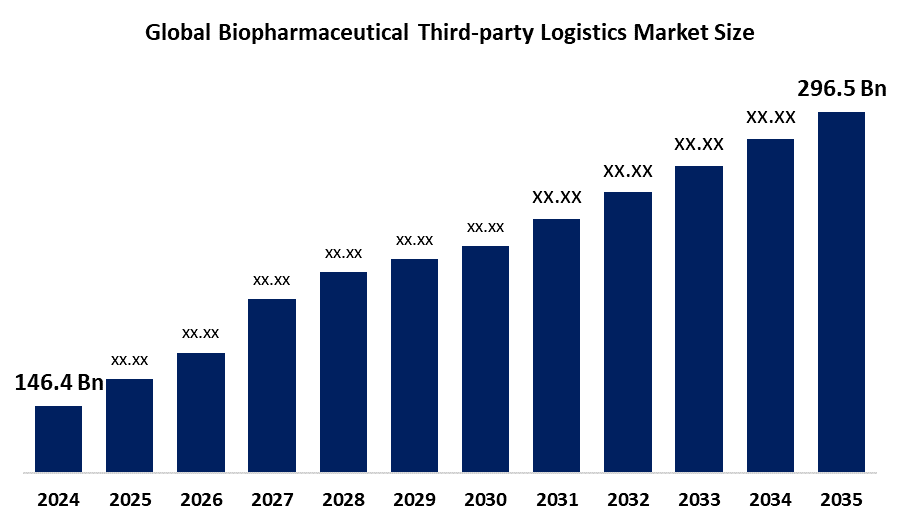
Top 50 Companies in The Bio-based Polymer Market: Key Insights & Innovations
RELEASE DATE: Aug 2025 Author: Spherical InsightsRequest Free Sample Speak to Analyst
Description
According to a research report published by Spherical Insights & Consulting, The Global Bio-based Polymer Market Size is projected To Grow from USD 16.32 Billion in 2024 to USD 76.12 Billion by 2035, at a CAGR of 15.03% during the forecast period 2025–2035. The market is expanding due to a number of factors, including the introduction of various government laws and policies, the rising demand for environmentally friendly packaging, rising investments in the manufacturing of bioplastics, and the quick development of bio-based polymer materials.
Introduction
Biopolymers, sometimes referred to as bio-based or biodegradable polymers, are made from renewable resources like microbes and plants. The Market Size for Bio-Based Polymers has expanded significantly in recent years due to growing environmental consciousness and a focus on sustainable substitutes for conventional plastics made from petroleum. A promising way to lessen the negative environmental effects of traditional plastics is to use bio-based polymers, which are made from renewable resources, including maize starch, sugarcane, and other plant-based materials. The plastics business is changing due to this move toward environmentally friendly polymers, which presents a viable path towards a more sustainable future. Growing environmental consciousness among consumers and businesses is one of the main drivers propelling the growing demand for bio-based polymers. Sustainable products are becoming more and more popular as a result of increased public awareness of plastic pollution and climate change. Because they are biodegradable and made from renewable resources, bio-based polymers fit in perfectly with this environmentally responsible way of thinking. The use of bio-based polymers in a variety of applications is being fueled by manufacturers' and customers' recognition of the significance of lowering carbon footprints and minimizing the buildup of non-biodegradable trash.
Navigate Future Markets with Confidence: Insights from Spherical Insights LLP
The insights presented in this blog are derived from comprehensive market research conducted by Spherical Insights LLP, a trusted advisory partner to leading global enterprises. Backed by in-depth data analysis, expert forecasting, and industry-specific intelligence, our reports empower decision-makers to identify strategic growth opportunities in fast-evolving sectors. Clients seeking detailed market segmentation, competitive landscapes, regional outlooks, and future investment trends will find immense value in the full report. By leveraging our research, businesses can make informed decisions, gain a competitive edge, and stay ahead in the transition toward sustainable and profitable solutions.
Unlock exclusive market insights - Download the Brochure now and dive deeper into the future of the Bio-based Polymer Market.
Bio-based Polymer Market Size & Statistics
- The Market Size for Bio-based Polymer Was Estimated to be worth USD 76.12 Billion in 2024.
- The Market Size is Going to Expand at a CAGR of 15.03% between 2025 and 2035.
- The Global Bio-based Polymer Market Size is anticipated to reach USD 26.76 Billion by 2035.
- North America is expected to generate the highest demand during the forecast period in the Bio-based Polymer Market
- Asia-Pacific is expected to grow the fastest during the forecast period in the Bio-based Polymer Market.

Regional growth and demand
Asia-Pacific is expected to grow the fastest during the forecast period in the bio-based polymer market. Rapid industrialization, expanding environmental legislation, and an abundance of agricultural resources in nations like China, India, and Thailand are the main drivers of this supremacy. The need for bio-based products, especially in the packaging, automotive, and textile industries, is driven by the region's robust manufacturing base and growing middle class. China's "Made in China 2025" policy and India's National Bio-Energy Mission are two examples of government initiatives that promote the use of sustainable technologies, such as bio-based polymers.
North America is expected to generate the highest demand during the forecast period in the bio-based polymer market. A combination of economic, environmental, and regulatory factors is driving a large expansion in the North American market for bio-based polymers. Tight government regulations and policies, such as bans on single-use plastics and incentives for the use of sustainable materials, are pushing industries to transition to bio-based polymers. Furthermore, the BioPreferred Program of the U.S. Department of Agriculture (USDA) supports market acceptance by promoting the use of bio-based products and offering certification. Another significant element is the rising need for eco-friendly packaging in industries including food and beverage, consumer goods, and e-commerce.
Top 10 trends in the Bio-based Polymer Market
- Rapid expansion of bio-based polymers
- Growing use in the packaging and automotive industries
- Rise of waste-based bio-materials and circular economy practices
- Development of functional bio-coatings and films
- Government regulations and incentives promoting sustainability
- Increasing consumer demand for eco-friendly products
- Advancements in biotechnology and synthetic biology
- Emergence of bio-based textiles and apparel
- Investment in bio-based plastics manufacturing capacity
- Integration of bioplastics in consumer goods and electronics
1. Rapid expansion of bio-based polymers:
Bio-based polymers such as PLA, PHA, and bio-PE are rapidly gaining market traction due to their comparable performance to conventional plastics and lower environmental impact. This growth is supported by increasing investments, technological improvements, and expanding production capacities worldwide.
2. Growing use in packaging and automotive industries:
Sectors like packaging and automotive are adopting bio-based polymers widely to meet sustainability targets such as lightweighting and biodegradability. These applications benefit from regulatory bans on single-use plastics and consumer preference shifts towards greener options.
3. Rise of waste-based bio-materials and circular economy practices:
The use of lignin, cellulose, and agricultural waste derivatives in producing bio-based materials supports circular economy initiatives by converting waste streams into high-value products. This trend contributes to reducing reliance on fossil feedstocks and promotes sustainability.
Empower your strategic planning:
Stay informed with the latest industry insights and market trends to identify new opportunities and drive growth in the bio-based polymer market. To explore more in-depth trends, insights, and forecasts, please refer to our detailed report.
Top 25 Companies Leading the Bio-based Polymer Market
- NatureWorks
- BASF
- Corbion
- Mitsubishi Chemical Corporation
- Novamont
- Danisco (DuPont Nutrition & Biosciences)
- Total Corbion PLA
- Braskem
- Biome Bioplastics
- Arkema
- Synbra Technology
- Ticona (Celanese)
- Metabolix
- Roquette Frères
- Futerro
- Basf SE
- Plantic Technologies
- NaturePlast
- Avantium
- DIC Corporation
- Sulapac
- Trinseo
- Bio-on
- BioAmber
- DuPont
1. NatureWorks – Blair, Nebraska, USA
NatureWorks is a leading bio-based polymer producer known for its Ingeo™ brand polylactic acid (PLA), derived from renewable plant materials such as corn and sugarcane. Headquartered in Nebraska, NatureWorks combines advanced fermentation and polymerization technologies to manufacture sustainable, high-performance bioplastics used in packaging, fibers, 3D printing filaments, and consumer goods. As a pioneer in cradle-to-grave product design, the company focuses on reducing greenhouse gas emissions and enabling circular economy solutions. NatureWorks operates globally with a presence in North America, Europe, and Asia, serving brand owners and manufacturers seeking eco-friendly alternatives to traditional plastics.
2. BASF – Ludwigshafen, Germany
BASF, a global chemical industry leader headquartered in Germany, actively develops bio-based polymers and additives to reduce the environmental footprint of plastics. Their Rheovis® range for coatings now uses bio-based ethyl acrylate, significantly lowering carbon footprint while maintaining performance. BASF’s bio-based polyols and polymer dispersions target sectors like automotive, packaging, and renewable energy. With a strategic production facility in India, BASF supports the fastest-growing markets in Asia Pacific, emphasizing sustainability and innovation through renewable feedstocks and optimized manufacturing.
3. Corbion – Amsterdam, Netherlands
Corbion is a global front-runner in bio-based polymers, specializing in polylactic acid (PLA) marketed as Luminy®. Jointly owned with TotalEnergies, Corbion’s production facility in Thailand enables large-scale PLA manufacturing with a focus on circular economy principles and a lower carbon footprint. Headquartered in Amsterdam, Corbion serves food packaging, medical, and consumer segments with biodegradable and compostable polymers. Their fermentation expertise and global supply chain optimize production to meet rising global demand for sustainable plastic alternatives.
4. Mitsubishi Chemical Corporation – Tokyo, Japan
Mitsubishi Chemical is a key bio-based polymer innovator offering materials like BioPBS™, a bio-based and biodegradable plastic derived from plant sugars such as sugarcane and cassava. Headquartered in Tokyo, the company emphasizes compostability, high heat resistance, and compatibility with existing processing equipment. Mitsubishi Chemical targets packaging, agricultural films, and single-use products with durable, eco-friendly alternatives. Their advanced polymer technology aligns with growing global calls for sustainable materials and circular economy solutions.
5. Novamont – Novara, Italy
Novamont, based in Novara, Italy, is a leading developer of biodegradable and compostable bioplastics, notably the Mater-Bi® product family. Combining chemistry, agriculture, and sustainability, Novamont pioneers innovations at the intersection of bioeconomy and circular economy. The company operates multiple research centers and production sites in Europe with a global commercial footprint. Novamont focuses on applications spanning packaging, agriculture, and consumer goods, working to reduce plastic pollution and contribute to climate change mitigation through renewable resource utilization.
Are you ready to discover more about the bio-based polymer market?
The report provides an in-depth analysis of the leading companies operating in the global bio-based polymer market. It includes a comparative assessment based on their product portfolios, business overviews, geographical footprint, strategic initiatives, market segment share, and SWOT analysis. Each company is profiled using a standardized format that includes:
Company Profiles
- NatureWorks
- Business Overview
- Company Snapshot
- Products Overview
- Company Market Share Analysis
- Company Coverage Portfolio
- Financial Analysis
- Recent Developments
- Merger and Acquisitions
- SWOT Analysis
- BASF
- Corbion
- Mitsubishi Chemical Corporation
- Novamont
- Danisco (DuPont Nutrition & Biosciences)
- Total Corbion PLA
- Braskem
- Biome Bioplastics
- Others.
Conclusion
The Bio-Based Polymer Market Size is rapidly growing driven by increasing environmental concerns and demand for sustainable alternatives to conventional plastics. Advances in biotechnology and feedstock diversification are enabling production of high-performance, biodegradable polymers. Strong adoption in packaging, automotive, and consumer goods sectors supports this expansion. Government regulations and incentives further accelerate market penetration and innovation.
About the Spherical Insights & Consulting
Spherical Insights & Consulting is a market research and consulting firm which provides actionable market research study, quantitative forecasting and trends analysis provides forward-looking insight especially designed for decision makers and aids ROI.
Which is catering to different industry such as financial sectors, industrial sectors, government organizations, universities, non-profits and corporations. The company's mission is to work with businesses to achieve business objectives and maintain strategic improvements.
CONTACT US:
For More Information on Your Target Market, Please Contact Us Below:
Phone: +1 303 800 4326 (the U.S.)
Phone: +91 90289 24100 (APAC)
Email: inquiry@sphericalinsights.com, sales@sphericalinsights.com
Contact Us: https://www.sphericalinsights.com/contact-us
Need help to buy this report?